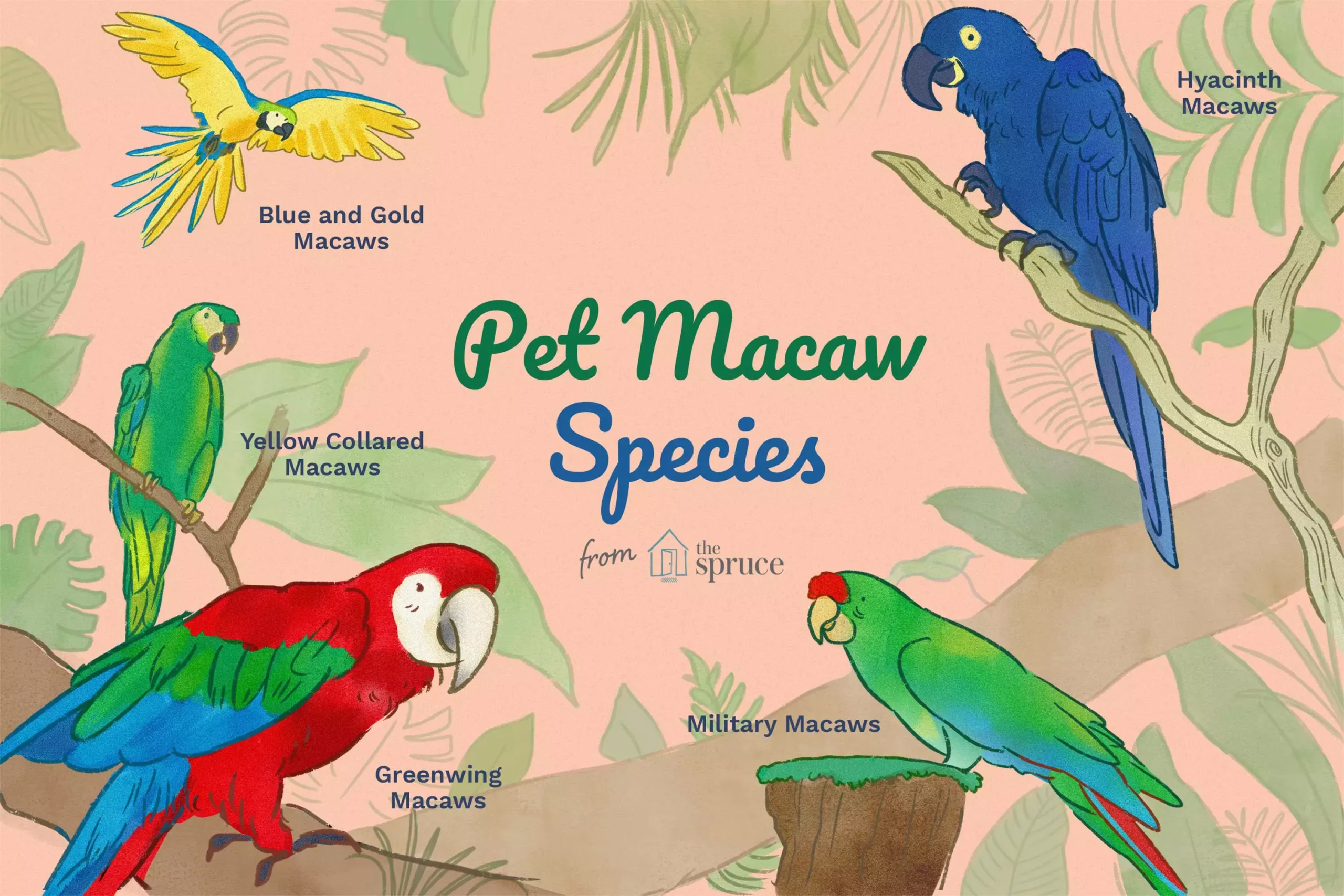Macaws are fascinating creatures that capture the hearts of bird lovers around the globe. With their vibrant plumage and highly social nature, these large, intelligent birds require a significant commitment from their owners. This article explores the different species of macaws, their unique characteristics, and essential considerations for prospective pet owners.
The blue and gold macaw, often referred to as the blue and yellow macaw, stands out for its stunning appearance and engaging personality. Reaching lengths of up to three feet, including a striking tail, these birds demand the attention similar to that of a dog or a cat. It’s essential for potential owners to recognize that they aren’t beginner-friendly pets. Their vocalizations, which can be quite loud and resemble a scream, might be a shock to those unaccustomed to such a cacophony. However, dedicated owners are rewarded with a pet that possesses an exuberant personality and forms a deep bond with its human family. Engaging in interactive play and consistent socialization is crucial for this species, as they require a great deal of interaction to thrive emotionally and mentally.
The Charm of Greenwing Macaws
In contrast to the boisterous blue and gold macaw, greenwing macaws exhibit a sweet and gentle disposition. While they certainly require their fair share of social interaction, they tend to be more forgiving of the owner’s time constraints. Greenwing macaws are trainable and respond positively to creative reinforcement strategies. The process of developing a bond with them may take time, but with patience, they will flourish in a nurturing environment. They are better suited for owners who may not have all day, every day, to devote to their pet but still seek an affectionate companion.
If potential owners are looking for a macaw experience on a smaller scale, Hahn’s macaw might just be the ideal candidate. These petite birds are friendly, social, and intelligent, making them relatively easy to handle. Their training aptitude means that with consistency and care, Hahn’s macaws can learn to mimic speech effectively. While their vocalizations can still be the signature screeching typical of macaws, their reduced size makes them more manageable for first-time owners who are not yet ready for the commitment that larger species demand.
The Majestic Hyacinth Macaw: An Advanced Challenge
On the opposite end of the spectrum lies the hyacinth macaw, the largest macaw species. Their beauty and intelligence make them highly sought after, but they require an experienced owner due to their complex care needs. Hyacinth macaws demand an extraordinary level of time and attention, which can be overwhelming for newcomers. Their social nature means they should not be left alone frequently, as this could lead to behavioral issues. Ideally, a potential owner should have a grounded understanding of macaw behavior and the patience to meet the needs of these magnificent birds.
Hybrid macaws represent a fascinating blend of species, bred for specific traits such as color and temperament. However, it is crucial that only seasoned bird owners with an understanding of both parental species’ behaviors consider taking on a hybrid. These hybrids can exhibit varied personalities, influenced by their mixed lineage. As such, preparation for unpredictability in behavior becomes vital.
Illiger’s and Military Macaws: Playful Companions
Illiger’s macaws are playful and friendly birds known for their engaging nature. Sourced from closely watched breeding, these birds thrive on human interaction, developing strong bonds with their owners. Their playful antics create a lively home atmosphere but require that they remain academically stimulated through puzzles and toys. Similarly, military macaws are notable for their curiosity and social nature; they thrive with consistent interaction but demand ample time out of the cage.
Scarlet macaws, known for their striking red hues, bring energy and excitement to any home. However, they can become bored quickly and require ongoing engagement with toys and attention from their humans. Due to their size and vocal nature, it is less advisable to keep them in smaller spaces, as their calls may disturb neighbors. In contrast, the severe macaw offers a delightful personality, forming close bonds with owners while demonstrating impressive vocal abilities. These sociable birds also require significant attention and enrichment to thrive.
With their clever antics, yellow-collared macaws are both charming and mischievous. These resourceful birds need ample socialization and mental stimulation. Potential owners should ensure that their cages are escape-proof, as these intelligent birds can be adept at finding ways out. Despite some individuals leaning towards being one-person birds, many yellow-collared macaws adapt well to family settings, providing companionship to all family members.
While macaws bring joy and companionship, their care requires a profound commitment due to their social needs, intelligence, and sometimes demanding nature. Carefully evaluating one’s lifestyle, experience level, and willingness to engage can ensure a harmonious relationship between bird and owner. Only then can you truly appreciate the beauty of sharing life with these magnificent creatures.

